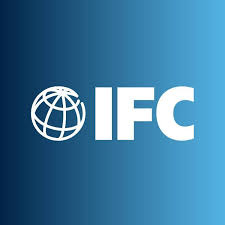The Africa CEO Forum, in collaboration with the International Finance Corporation (IFC), has issued a clarion call to African nations, particularly Nigeria, to prioritize resolving internal trade barriers as a fundamental prerequisite for achieving global economic prominence. This urgent message emerged from a virtual media briefing preceding the 2025 Forum, which is slated to delve into the continent’s economic landscape amidst a volatile global backdrop. The central theme, “Can a New Deal Between State and Private Sector Deliver the Continent a Winning Hand?”, underscores the critical need for enhanced collaboration between governments and the private sector in navigating the complexities of rising protectionism, escalating debt burdens, and dwindling international aid. The Forum aims to foster dialogue and action towards strengthening public-private partnerships, recognizing the private sector as a vital engine for economic growth and development.
A stark assessment of Africa’s current global trade standing dominated the pre-Forum discussions. IFC’s Regional Director for West Africa, Olivier Buyoya, pointedly highlighted the continent’s marginal role in global trade, emphasizing the significant strides needed to address internal economic vulnerabilities, particularly in achieving food security. He illustrated this with the prevalent reliance on imported staples like rice in Nigeria and maize for livestock feed across several nations, underscoring a fundamental weakness in domestic production. This dependence on imports, according to Buyoya, exposes a critical need for internal solutions before vying for a stronger global presence. The challenge extends beyond food security, encompassing the limited opportunities available for the burgeoning youth population, a pressing issue requiring focused public sector intervention.
Buyoya underscored the imperative of nurturing local businesses as a cornerstone of economic strengthening. Supporting businesses that generate employment within African nations is not only crucial for internal economic growth but also acts as a buffer against external global pressures. Furthermore, he emphasized the need to bridge the trust deficit between the public and private sectors. Mutual distrust, characterized by the private sector’s perception of excessive taxation and politically driven policies and the public sector’s skepticism of private sector motives, hinders progress. Buyoya stressed the necessity of open communication and collaboration between these two essential players for a thriving African economy.
The upcoming Africa CEO Forum will serve as a crucial platform for fostering this much-needed dialogue. By bringing together over 2,000 CEOs, investors, and public sector leaders from over 75 countries in Abidjan, Côte d’Ivoire, the Forum aims to catalyze action. The event will provide an opportunity for stakeholders to address critical issues, including internal trade challenges, food security, youth unemployment, and the vital partnership between government and private enterprise. The Forum’s organizers believe that fostering a collaborative environment is essential for navigating the complex global economic landscape and positioning Africa for sustainable growth and development.
The discussions underscored the urgency of industrialization and bolstering internal economic capacity – growing the “African pie” – as paramount. While the benefits of increased international trade are generally acknowledged, the emphasis was placed on developing internal strengths before actively pursuing global market expansion. Adrian Fielding, Director of the Africa CEO Forum, stressed that solidifying internal capacity is a foundational step, laying the groundwork for sustainable engagement with the global economy. The Forum’s theme encapsulates this principle, highlighting the critical role of a robust public-private sector partnership in driving the continent’s economic advancement.
The 2025 Africa CEO Forum, therefore, takes on a significant role in shaping Africa’s economic trajectory. It provides a platform for confronting internal challenges and forging a path towards sustainable growth and global competitiveness. The focus on intra-African trade, addressing food security, fostering youth employment, and strengthening the public-private sector partnership are all crucial components of the broader agenda. By facilitating dialogue and collaboration among key stakeholders, the Forum aims to empower African nations to take control of their economic destiny and emerge as stronger players on the global stage. The event is not merely a gathering but a catalyst for action, driving the continent towards a more prosperous and resilient future.














